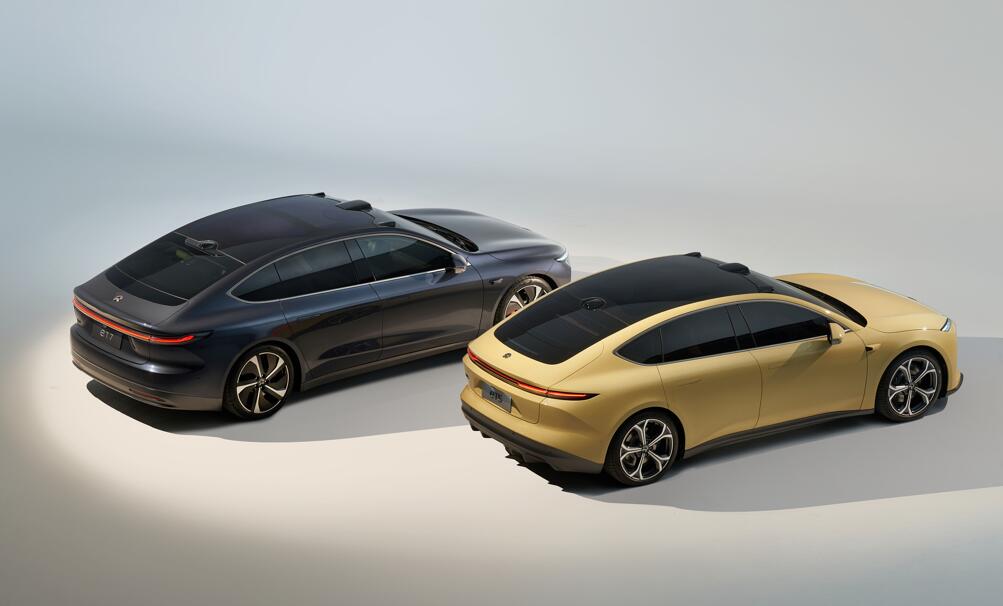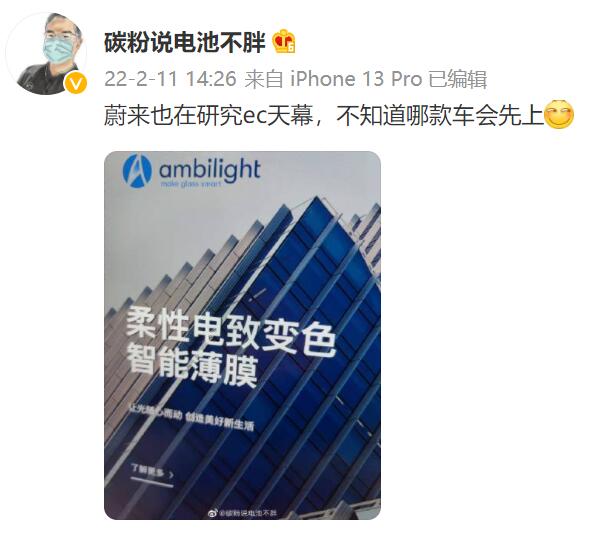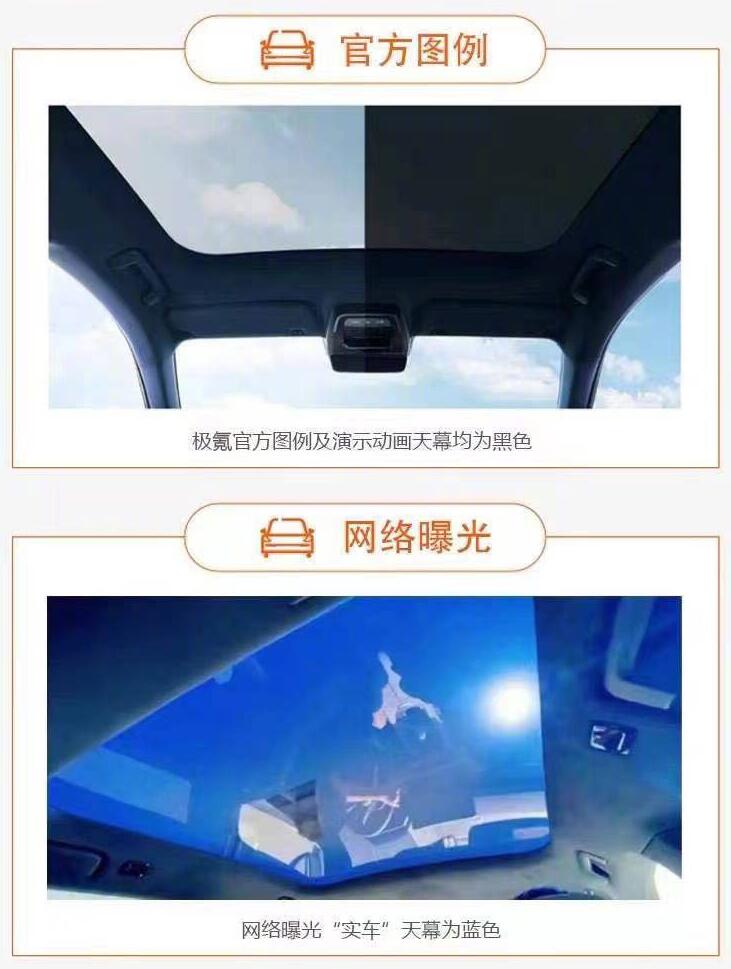Nio Capital has invested in an electrochromic technology developer last year, perhaps paving the way for the introduction of the technology.

(Image credit: Nio)
The color-changing glass roof is seen as a newly intriguing new technology in the electric vehicle industry, and Nio is said to be likely to use it on future models.
"Nio is working on an EC roof, but it's not clear which model will be first to have it," Weibo car blogger @碳粉说电池不胖, a longtime Nio follower, said today.
The blogger didn't provide any more information, though the blog post was accompanied by a poster of Ambilight, a portfolio company of Nio's venture capital arm, Nio Capital.
The EC roof refers to a roof that uses electrochromic glass, an option that Geely's premium brand Zeekr already offers on its first model, the Zeekr 001.
Electrochromic materials are typically a cross-disciplinary technology that has been active in academia for nearly half a century.
Although it holds great commercial promise, it has been difficult to be used on a large scale because of its technical difficulty and high barriers.
At the launch of its brand update last November 18, Xpeng Chairman and CEO He Xiaopeng said the company had considered introducing the technology into its products several years ago, but gave up because it was too difficult.
Although Zeekr became the first of China's mainstream EV maker to use the technology, it was once met with a lot of complaints as a result.
In late October last year, two days after Zeekr delivered the Zeekr 001 to its first owners, some complained that they had been misled because the electrochromic glass roof they had paid for as an option was blue, instead of the gray and black color Zeekr had previously shown.
More owners then released a joint statement asking Zeekr to clarify this, saying they could not accept the blue electrochromic glass roof.
According to a report in Autohome, it's not that Zeekr isn't ready, but that the industry isn't ready, as upstream suppliers are not yet able to offer the roof in gray electrochromic glass.
At the end of November last year, Nio Capital and BYD completed a strategic investment in electrochromic technology developer Ambilight for an undisclosed amount.
Following the strategic investment, Ambilight completed a multi-billion dollar Series C round led by Warburg Pincus with participation from Dinghe Gaoda and Cygnus Equity.
These new financing will be used for electrochromics' new product research and development, capacity expansion, and global commercialization rollout.
Ambilight was founded in 2017 and has offices in Shenzhen, Silicon Valley, and Indiana, according to the company's website.
In the past four years, Ambilight has used their technology for mass-producible products, including automotive sunroofs/roofs, anti-glare mirrors, architectural curtain walls, cell phone backshells, and AR glasses.
According to Yan Zhu, Managing Partner of Nio Capital, electrochromic material technology, with its adjustable light transmission, re-empowers traditional glass to control light and temperature, and has RMB trillions of market space in the automotive, architectural curtain wall and consumer electronics sectors.
Ambilight's third-generation electrochromic flexible film has the world's leading process and cost advantages for mass production applications, according to Zhu.
Nio Capital looks forward to working with Ambilight to help innovative companies in the materials sector move forward, Zhu said at the time.

